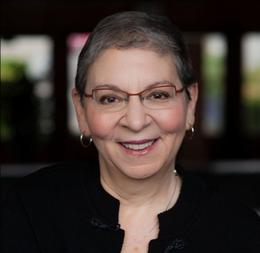That book has got to set its stall out in 20 pages. I used to be a stand-up. I couldn't walk out on a stage at the Comedy Store and go: 'Stick with me, I'll get funny in about ten minutes.' There has to be something within the first chapters that's got me interested or hooked or engaged or, really, what's the point?
--Author Mark Billingham, speaking recently at the Times and the Sunday Times Cheltenham Literature Festival

|
|
| Mark Billingham | |
Billingham's "20-page rule" comments, which were also shared in the Guardian, struck a chord, as such opinions always do when the conversation turns to finishing or bailing out of books in the early chapters. He confessed to giving up on five out of every ten books he starts because "life's too short.... There are so many great books out there. Even more so with genre fiction. We're supposed to tell you a story and if that story isn't grabbing you--it may not be crash bang wallop in the plot, it may be a voice--then for God's sake throw it across the room angrily."
He also contrasted his reading patience with that of his wife, who even if she admits to not enjoying a book will persevere as if it were a "war of attrition."
The game, as they say, was afoot. In the Times, Hilary Rose noted that she was 35 before she reached the same conclusion as Billingham: "I don't think I'd go so far as to throw it across the room angrily, as he suggests, because even a bad book is still a book that someone else might enjoy, and worthy of respect."
But Rupert Hawksley wasn't at all pleased ("It's an insult to authors not to finish each and every book you start"), writing in the Independent: "The idea that we read simply to be entertained--as an easy form of escapism--seems to underpin all the arguments for giving up on a book: 'I couldn't get into it,' 'it didn't grip me,' 'too slow.' But entertainment, surely, isn't the only reason why people read--or indeed why authors write."
It's a long-running, unresolvable debate, a literary bloodsport.
So, about those 20 pages. I can be an impatient reader in the early stages of any book, and I bail... a lot. But that's also a survival skill when new books and ARCS, print as well as digital, are flying at me like meteor storms.

|
|
| Nancy Pearl | |
I guess I subscribe to librarian, author and action figure Nancy Pearl's "Revised 'Rule of 50.' " In 2011, she told the Globe & Mail she had originally developed her Rule of 50 on the spur of the moment:: "Give a book 50 pages. When you get to the bottom of Page 50, ask yourself if you're really liking the book. If you are, of course, then great, keep on reading. But if you're not, then put it down and look for another." It's a reader's version of Marie Kondo's "Sparking Joy" theory.
In her 50s and 60s, Pearl decided to update her rule: "I could no longer avoid the realization that, while the reading time remaining in my life was growing shorter, the world of books that I wanted to read was, if anything, growing larger." This was her revision: "When you are 51 years of age or older, subtract your age from 100, and the resulting number (which, of course, gets smaller every year) is the number of pages you should read before you can guiltlessly give up on a book. As the saying goes, 'Age has its privileges.' And the ultimate privilege of age, of course, is that when you turn 100, you are authorized (by the Rule of 50) to judge a book by its cover."

Resist: I choose not to read almost every book in existence, strictly on a raw numbers basis.
Finish: Open book, read to "The End." Optional use of bookmarks (aka "quitter strips") to rest along the way.
Adjourn: So many books on my shelves are still bookmarked after years of neglect. I didn't abandon them; I just got... distracted.
Abandon: I have (more often than I'd like to admit) simply closed the cover early and moved on. Ceremonially, the key moment is when the bookmark is removed, not moved.
A few years ago, James Colley wrote a Guardian piece in which he suggested that this book-finishing obsession at some point "becomes a calculation of ego. When a book is finished it becomes a trophy. When it's left half-finished it becomes an albatross.... But it doesn't have to be like this. There's a joy that comes from putting down a book that isn't working for you. It's a little expression of freedom and control."
He cautioned, however, that some books have to be read to the end: "If you are currently sitting in a forklift and the instruction manual just isn't quite grabbing you, I would still insist that you finish reading it."
So read any book you want to and bail when you have to. After all, nobody's watching. Except e-book providers. They always know the page where you stopped reading.

